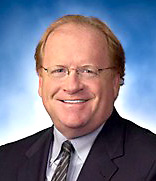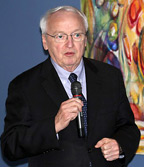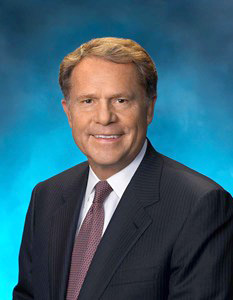Heading 2
Lorem ipsum dolor sit amet, consectetur adipisicing elit. Nostrum minus ea suscipit porro alias corporis libero at. Perferendis omnis, veniam nemo beatae vel? Tempora numquam a repellat eaque natus, magnam?
Heading 2
Lorem ipsum dolor sit amet, consectetur adipisicing elit. Autem ipsum mollitia neque, illum illo excepturi, eum incidunt fugit nostrum est, voluptate eaque minima corporis debitis at, dolores ipsam. Quaerat, dolores.
Heading 2
Lorem ipsum dolor sit amet, consectetur adipisicing elit. Autem ipsum mollitia neque, illum illo excepturi, eum incidunt fugit nostrum est, voluptate eaque minima corporis debitis at, dolores ipsam. Quaerat, dolores.
Heading 2
Lorem ipsum dolor sit amet, consectetur adipisicing elit. Autem ipsum mollitia neque, illum illo excepturi, eum incidunt fugit nostrum est, voluptate eaque minima corporis debitis at, dolores ipsam. Quaerat, dolores.
Heading 2
Lorem ipsum dolor sit amet, consectetur adipisicing elit. Autem ipsum mollitia neque, illum illo excepturi, eum incidunt fugit nostrum est, voluptate eaque minima corporis debitis at, dolores ipsam. Quaerat, dolores.
At a Feb. 20, 2013 meeting, members of the Board of Directors of Unified Grocers, the largest wholesale grocery distributor in the Western United States, named Bob Ling President and Chief Executive Officer, effective May 1, 2013. Ling, who has been President of Unified since June, 2011, succeeds Al Plamann, who announced his retirement earlier at the Company’s Annual Shareholders’ Meeting.

“Bob Ling is an outstanding administrator and a thoughtful and creative leader,” said Dick Goodspeed, Chairman of the Board, Unified Grocers. “Having spent 16 years as a top executive at our company, he understands our business, he knows our retail members and customers, he has built strong relationships with the vendor community and he works well with our associates. We believe that Bob Ling is an excellent choice to lead our company at this point in time.”
“I have all the confidence in the world that Bob Ling will be an effective and dynamic leader for Unified,” said Al Plamann, Chief Executive Officer, Unified Grocers. “The succession plan that the Board and Senior Management put in place more than a year ago is now setting the stage for future growth. I believe the future for Unified is in very good hands.”
Prior to being named President, Ling served as Executive Vice President, General Counsel and Secretary, a position in which he was responsible for the Company’s Human Resources, Labor Relations, Real Estate and Government Relations functions.

Before he joined Unified in 1996, Ling held senior level positions with retail drugstore and supermarket companies. He was Vice President, General Counsel and Secretary for MegaFoods Stores, Inc., in Mesa, Arizona and also served as Acting President and CEO of MegaFoods. Ling also had a similar position with Reliable Drug Stores, Inc., in Indianapolis, Indiana. Earlier in his career, he was a partner in the law firm of Michael Best & Friedrich in Milwaukee, Wisconsin, concentrating his practice in employment and labor law.
Ling currently serves on the Board of Directors of the National Grocers Association and was Chairman of the Board of the California Grocers Association (CGA) in 2009 and recently served as Chairman of the Board of Trustees of the CGA Educational Foundation for four years. Previously, he served on CGA’s Executive Committee, was a member of the Government Relations Committee and the Association’s Political Advisory Committee.
He is a Board Member and Public Affairs Committee Member of the California Retailers Association. He also is a member of the California Business Roundtable and the Government Relations Committee of the Food Marketing Institute.
A graduate of Tufts University with a Bachelor of Arts degree in Economics, Ling holds a Juris Doctor degree from the University of Michigan Law School. He is a member of the State Bar of California and the State Bar of Wisconsin.
Unified Shareholders Elect Board of Directors, Goodspeed Elected Chairman of the Board
Shareholders of Unified Grocers, the largest wholesale grocery distributor in the Western United States, elected 16 individuals to the Board of Directors at the Company’s Annual Shareholders Meeting, held Feb. 20, 2013 in Cerritos, Calif.
At a Board of Directors meeting immediately following the Annual Shareholders Meeting, directors re-elected Richard E. Goodspeed, Principal, Goodspeed & Associates, as Chairman of the Board of Unified Grocers. Goodspeed has served as Chairman of Unified’s Board since 2010. Directors also re-elected Louis A. Amen, Chairman of the Board, Super A Foods, Inc., Los Angeles, Calif., as First Vice Chairman and elected Jay T. McCormack, President and Chief Executive Officer, Rio Ranch Markets, Riverside, Calif., as Second Vice Chairman.
In addition to Goodspeed, Amen and McCormack, 13 other individuals were elected by shareholders to serve on Unified’s Board of Directors:
- John Berberian, President, Berberian Enterprises, Inc., Los Angeles, Calif.
- Oscar Gonzalez, Co-owner, Northgate Gonzalez Markets, Inc., Anaheim, Calif.
- Paul Kapioski, President, CAP Food Services Co., Seattle, Wash.
- Darioush Khaledi, Chairman of the Board and Chief Executive Officer, K.V. Mart Co., Carson, Calif.
- Mark H. Kidd, President, Mar-Val Food Stores, Inc., Lodi, Calif.
- John D. Lang, President and Chief Executive Officer, Epson America, Inc., Long Beach, Calif.
- John Najjar, President, Cardiff Seaside Market, Inc., Cardiff, Calif.
- Thomas S. Sayles, Senior Vice President, University Relations, University of Southern California., Los Angeles, Calif.
- Mimi R. Song, President and Chief Executive Officer, Super Center Concepts, Inc., Santa Fe Springs, Calif.
- Robert E. Stiles, Special Advisor to the CEO, Gelson’s Markets, Encino, Calif.
- Michael S. Trask, President, Stanlar Foods, Inc., Granite Falls, Wash.
- Kenneth R. Tucker, President, Evergreen Markets, Inc., Greenville, Calif.
- Richard L. Wright, Chairman of the Board, Market of Choice, Inc., Eugene, Ore.
All directors on Unified’s Board were elected to one-year terms.

 Nearly one-sixth of WIC households in the United States reside in California.
Nearly one-sixth of WIC households in the United States reside in California.
 CGA Board Member Dan Meyer has been promoted to the position of Executive Vice President Retail Operations for Stater Bros. Markets.
CGA Board Member Dan Meyer has been promoted to the position of Executive Vice President Retail Operations for Stater Bros. Markets.